On May 27-28, 2024, 80 Years after Bretton Woods: Building an International Monetary and Financial System for All & 2024 Tsinghua PBCSF Global Finance Forum were successfully held in Hangzhou, Zhejiang Province, China. with the theme of “The Global South and the International Financial Architecture”, this session brought together prominent leaders and experts to address the critical issue of economic fragmentation and focused on the historical context, current challenges, and potential solutions for achieving a more stable and inclusive global financial system.
The session, moderated by Marc Uzan, Executive Director of the Reinventing Bretton Woods Committee, commenced with a keynote speech by Dilma Rousseff, President of the New Development Bank and former President of Brazil. The panel discussions featured distinguished experts including Christian Ghymers, Vice Chairman of Robert Triffin International, who delved into the challenges of the Triffin dilemma and currency regionalization; ZHANG Xiaoyan, Chair Professor and Associate Dean at Tsinghua PBCSF, who highlighted the rising importance and challenges of the global South; and David Passarelli, Director of the United Nations University Center for Policy Research, who emphasized the necessity of multilateralism and systemic reform to support equitable global development.
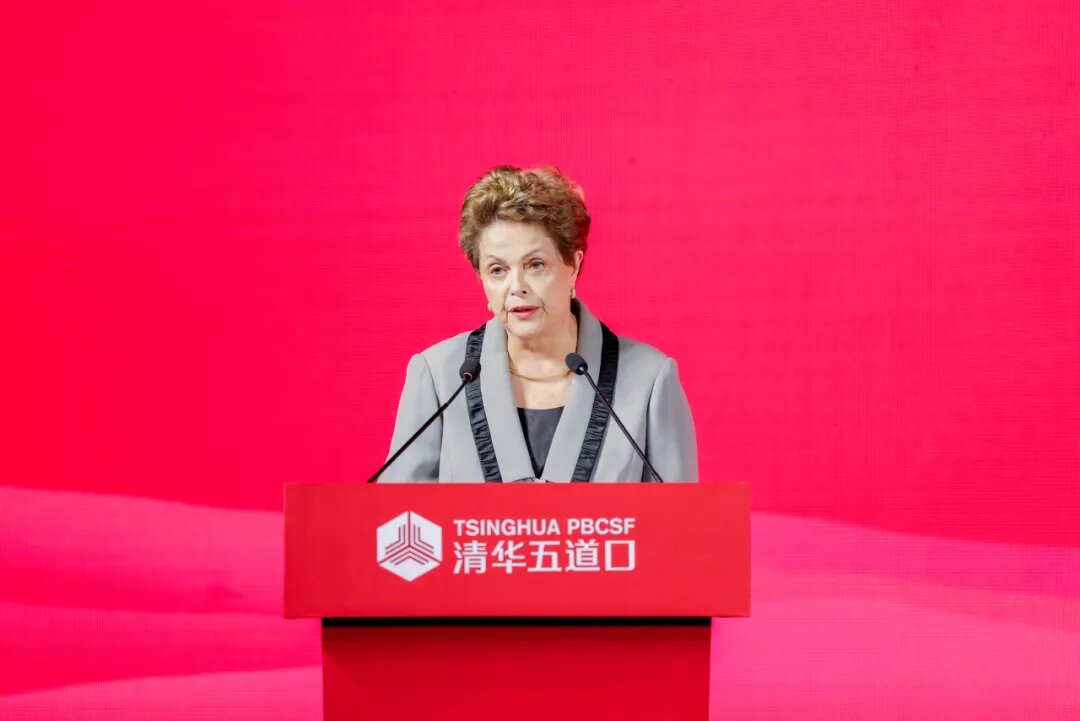
The picture shows Dilma Rousseff
Dilma Rousseff explored the impact of global economic fragmentation on emerging markets. She noted that 2024 marks the 80th anniversary of the Bretton Woods system, which played an important role in post-war economic recovery and development. However, the current global economic order has changed dramatically, with G7 countries occupying major voting power in the International Monetary Fund and the World Bank, and the interests of the countries of the South not being adequately represented. Rousseff emphasized that the US position as the world's main reserve currency has brought great advantages, but has also created imbalances in the global economy. She mentioned that the hegemonic position of the US dollar and its ability to cope with fiscal deficits by printing money, while favorable to the US, has had a negative impact on other countries. She called for a multipolar development of the international financial system, noting that China and other emerging market countries will continue to play an important role in the global economy. Rousseff also discussed BRICS cooperation and its potential in the global financial system. She mentioned that the BRICS countries are exploring the creation of a common currency to facilitate multi-polarity and the creation of multilateral agreements. Such a currency could utilize blockchain technology to enhance data transparency and security. In addition, she described the achievements of the New Development Bank (NDB) in promoting sustainable development, particularly its investments in the areas of transport, energy transition, water clean-up, social protection of the environment, and epidemic prevention and control. The NDB is planning to finance $30 billion in new projects over the critical development period of 2020 to 2026 to support sustainable development in the global South.
Rousseff concluded that despite the dominance of the US dollar in the global financial system, other alternative reserve currencies may emerge in the future. She called for more equitable and sustainable global economic development through multilateral cooperation and policy adjustments.
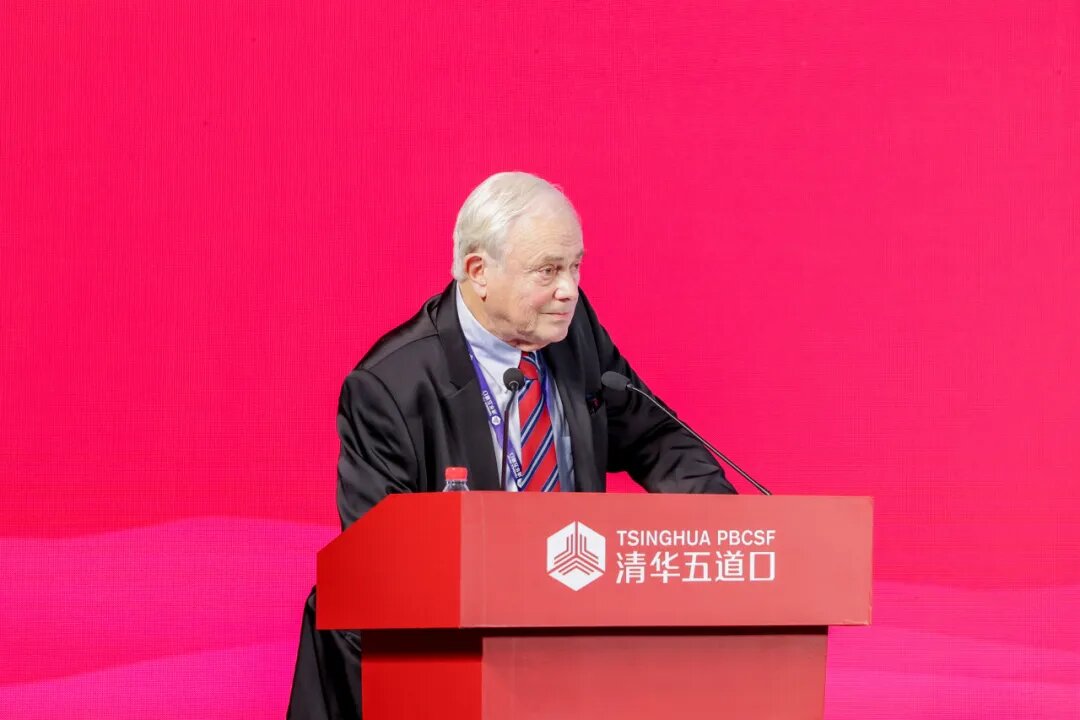
The picture shows Christian Ghymers
In his speech, Christian Ghymers explored the phenomenon of the global economy entering an era of currency regionalization and proposed a solution to the Triffin dilemma. He pointed out that more and more countries were beginning to use local currencies for cross-border payments and reserves, such as the internationalization of the renminbi. This trend raised three key questions: whether there was a move towards regional dollarization, whether a multi-polar monetary system would be more stable, and whether a multi-polar system could bring symmetry and balance. He argued that a critical multi-currency system would not bring stability and would exacerbate the Triffin Dilemma, emphasizing the wrongness of using local currencies as reserve currencies.
Ghymers mentioned that the Triffin Dilemma could not be solved by a competition between currencies of sovereign nations, and that an international reserve currency separate from any nation needed to be created i. e. a multilateral currency which is not the debt of any national economy. He proposed that a combination of Regional Monetary Arrangements (RMAs) and digital currencies could be part of the solution in the event of resistance to the dollar system. However, he argued that the renminbi and the euro could not yet fully replace the dollar, as this would lead them to become also “debtor/consumer of last resort” in order to be able to issue sufficient safe assets for supporting global liquidity needs.
He emphasized that the future international monetary system should avoid such a competition between major currencies for becoming debtors, which would inevitably lead to major financial instability. Instead a combination of RMAs and the creation of a multilateral single reserve currency could rebalance the system and provide sufficient global liquidity and stability. This would require, for example, to allow the IMF to issue/withdraw its own liability against national bonds in order to regulate global liquidity, all that ideally using CBDCs. This solution to the Triffin Dilemma does require only to agree to transform the IMF into a technical Lender-of-Last-Resort, without imposing no other coordination i.e. respecting better than any other formula national sovereignties, each country remaining responsible for the domestic impacts its own policies.
Christian Ghymers noted that the global economy was entering an era of currency regionalization and that the Triffin dilemma needed to be resolved through the creation of a multilateral reserve currency making compatible the development of regional monetary arrangements. He stressed the importance of avoiding competition among major currencies and achieving stability and balance in the international financial system through regional cooperation and digitalization processes.
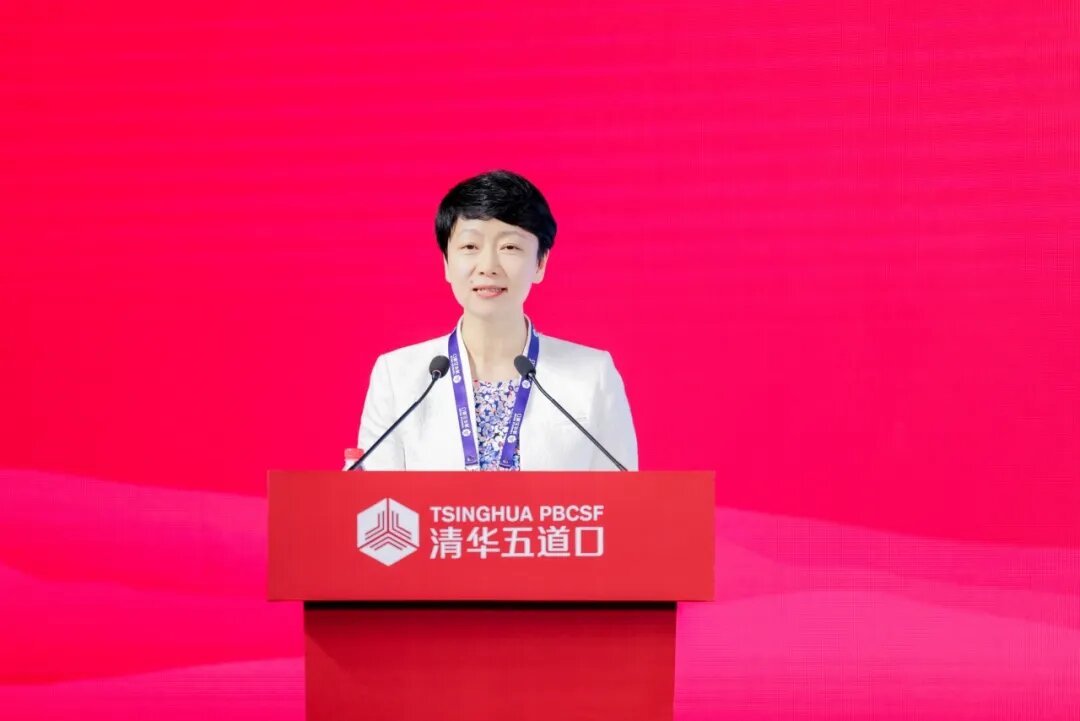
The picture shows Zhang Xiaoyan
Zhang Xiaoyan, has provided detailed data on the significance of the Global South. In 2000, the Global South accounted for 21% of the global economy, but by 2023, this proportion had increased to approximately 41%. In the MSCI index, the share of the Global South was only 4% in 2000, rising to 13% this year.
While the economic and social development of the Global South and its influence on the global economy have been on the rise, Zhang Xiaoyan notes that current global trade restrictions are becoming increasingly evident and severe. According to IMF data, there were over 3,000 global trade restrictions in 2023, compared to only 1,000 in 2019. Additionally, Zhang Xiaoyan points out that risks associated with global capital flows, the relatively small proportion of Southern countries in existing financial structures, and their lack of representation are also hindering the development of the Global South.
In the face of these challenges, Zhang Xiaoyan highlighted China's contributions to the Global South. This includes the China-initiated Belt and Road Initiative (BRI), with a total investment approaching $1 trillion, encompassing 3,000 cooperative projects, creating 420,000 jobs, and helping 40 million people escape poverty. In terms of global governance, Zhang Xiaoyan stated that China has been committed to building more partnerships. China is the largest shareholder of the Asian Infrastructure Investment Bank (AIIB), which has grown its membership to 109 in 2023. Furthermore, in 2023, China established a Global Development and South-South Cooperation Fund with a total capital of $4 billion.
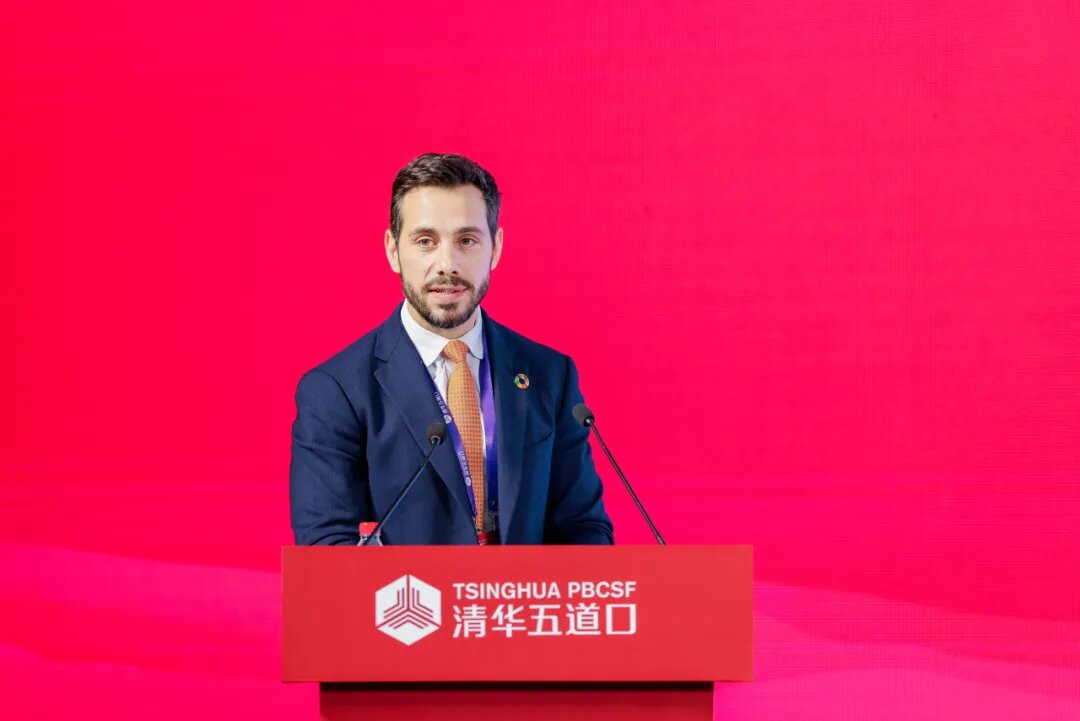
The picture shows David Passarelli
In his presentation, David Passarelli emphasized the importance of the 2024 Summit of the Future to be held in New York and its relationship to the Global South’s development. He mentioned that the Summit of the Future was born out of the 75th anniversary of the United Nations and the subsequent Our Common Agenda report, which aims to reassess and strengthen multilateralism, especially in the context of geopolitical conflicts and lagging global governance. The Common Agenda proposed by UN Secretary General Guterres aims to promote globally inclusive and effective multilateralism and to promote greater visibility and representation of the voice of the Global South on the international stage.
Passarelli noted that the Global South is asking for more space and representation, especially in the international economic and financial architecture. He listed six key demands articulated by the Global South, including faster resource injection, broader financial coverage, sustainable development finance, climate finance, improved debt architecture, and solidarity and self-sufficiency in the Global South. He noted that the ambition of the Summit of the Future is for 193 countries adopt a consensus document, which will contain specific provisions on the reform of the international financial architecture.
In addition, Passarelli mentioned a number of concrete reform measures currently being considered in the Summit of the Future outcome document, called the Pact for the Future—this includes the creation of a biennial summit to strengthen existing and establish more systematic links between the United Nations and the international financial institutions (an idea akin to a global economic security council), an independent review of the sovereign debt architecture, and the rechanneling of up to fifty percent of the 2021 allocated Special Drawing Rights (SDRs). These measures, among others, respond to the demands from the Global South for international financial architecture reform and promote more equitable and sustainable global economic coordination. The Summit of the Future is an important platform for the Global South to express its needs and achieve greater process and outcome equity: increasing participation economic governance and the benefits from the international financial system.
David Passarelli stressed the importance of the Summit of the Future in New York, noting that the global South needed to be supported by ensuring the Summit delivers greater representation and resources in the international financial architecture in order to achieve more equitable and sustainable development. He called for strengthened multilateralism to respond to the critical needs of the global South through international cooperation and concrete reform measures.
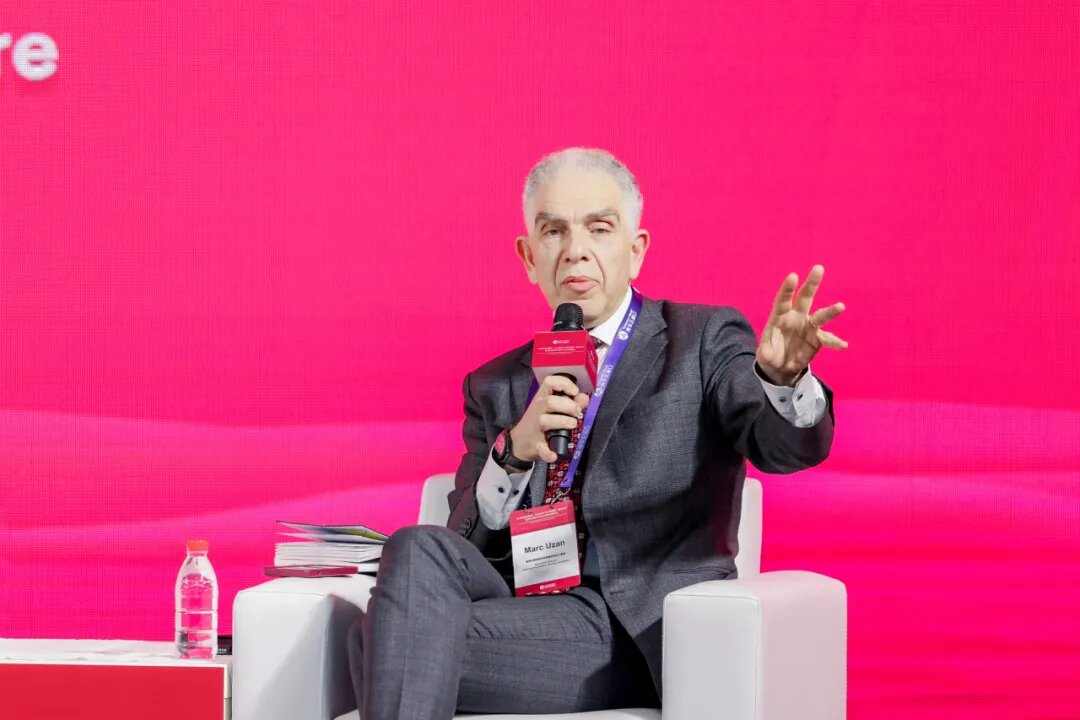
The picture shows Marc Uzan
At the conclusion of the forum, the session's moderator, Marc Uzan, Executive Director of the Reinventing Bretton Woods Committee, provided a summary. He remarked that we are witnessing significant changes in the global financial architecture. This 80th anniversary not only allows us to reflect on the development of the entire financial system but also to look forward to the future.